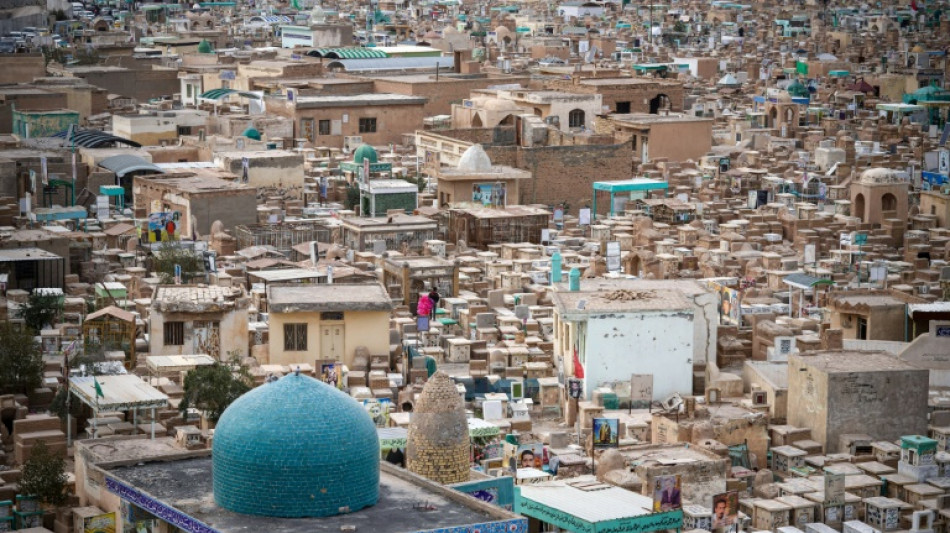
-
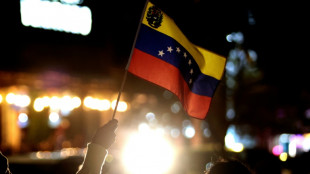 Venezuelan opposition figures 'rescued', now in US: Rubio
Venezuelan opposition figures 'rescued', now in US: Rubio
-
China eases monetary policy to boost ailing economy

-
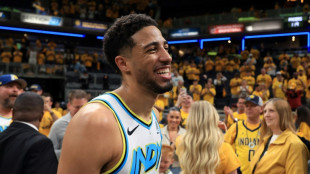 Haliburton stunner sinks Cavs as Pacers take 2-0 series lead
Haliburton stunner sinks Cavs as Pacers take 2-0 series lead
-
No rate cuts expected from US Fed facing 'unfavorable' conditions
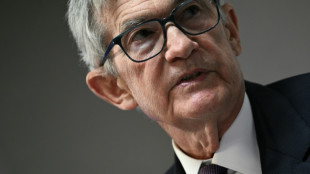
-
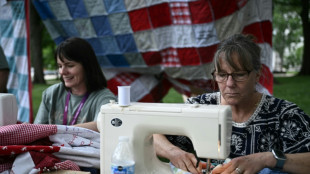 'No one is illegal': Mormon women stage patchwork protest in Washington
'No one is illegal': Mormon women stage patchwork protest in Washington
-
Indonesia's silvermen beg to make ends meet
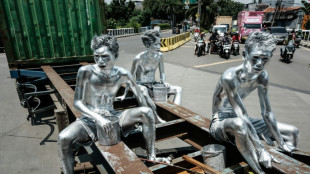
-
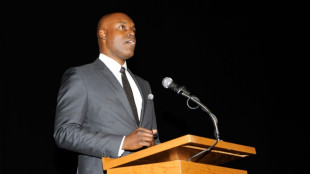 Toronto festival head says Trump tariffs would hurt film quality
Toronto festival head says Trump tariffs would hurt film quality
-
Trump talks tough on China, but early focus elsewhere
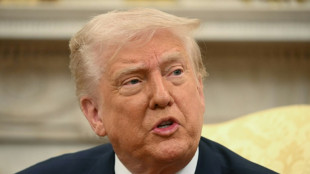
-
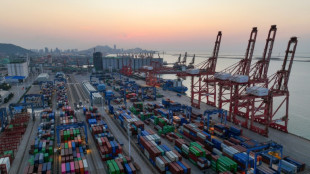 China vows to defend 'justice' in looming trade talks with US
China vows to defend 'justice' in looming trade talks with US
-
Man Utd seek to finish off Athletic Bilbao in chase for Europa glory
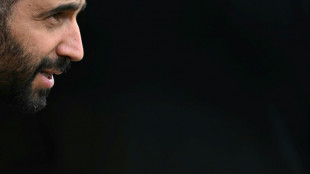
-
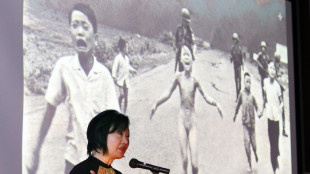 AP to continue crediting 'Napalm Girl' photo to Nick Ut after probe
AP to continue crediting 'Napalm Girl' photo to Nick Ut after probe
-
Colombia moves to join China's Belt and Road
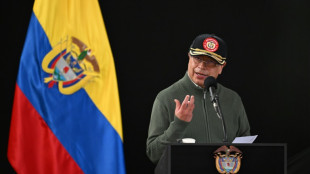
-
 Martinez cried 'for two days' after nearly missing Barca triumph with injury
Martinez cried 'for two days' after nearly missing Barca triumph with injury
-
US, Chinese officials to hold trade talks in Switzerland
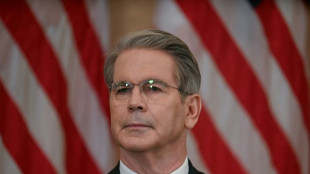
-
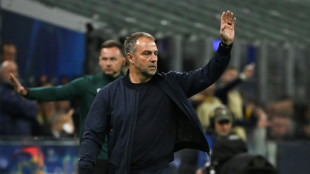 Barca 'will be back' after painful Champions League exit to Inter, says Flick
Barca 'will be back' after painful Champions League exit to Inter, says Flick
-
US jury awards WhatsApp $168 mn in NSO Group cyberespionage suit
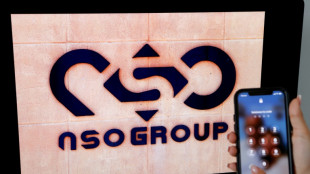
-
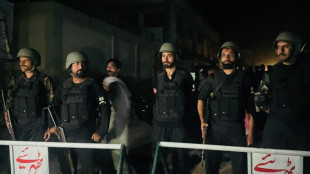 India launches strikes on Pakistan, Islamabad vows to 'settle the score'
India launches strikes on Pakistan, Islamabad vows to 'settle the score'
-
Trump vows 'seamless' experience for 2026 World Cup fans
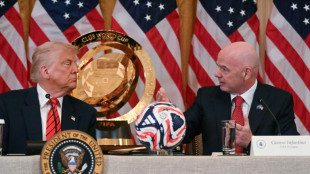
-
 Motown legend Smokey Robinson sued for sexual assault
Motown legend Smokey Robinson sued for sexual assault
-
Trump hopes India-Pakistan clashes end 'very quickly'

-
 Frattesi shoots Inter into Champions League final after Barcelona epic
Frattesi shoots Inter into Champions League final after Barcelona epic
-
India launches strikes on Pakistan, Islamabad vows retaliation
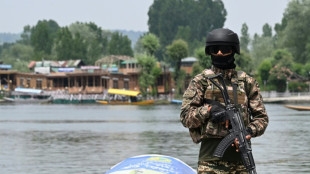
-
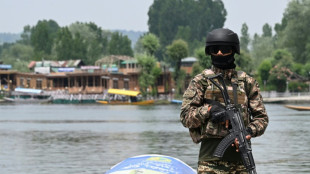 India launches strikes on Pakistan as Islamabad vows retaliation
India launches strikes on Pakistan as Islamabad vows retaliation
-
Alpine shock as F1 team principal Oakes resigns
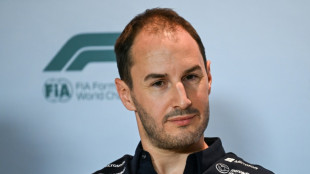
-
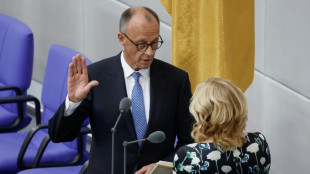 Merz elected German chancellor after surprise setback
Merz elected German chancellor after surprise setback
-
Gujarat edge Mumbai in last-ball thriller to top IPL table

-
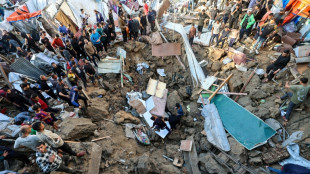 Israel's plan for Gaza draws international criticism
Israel's plan for Gaza draws international criticism
-
SpaceX gets US approval to launch more Starship flights from Texas
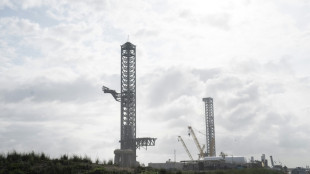
-
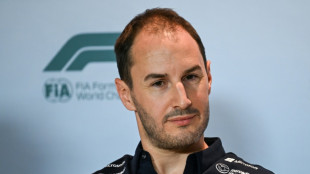 Alpine F1 team principal Oakes resigns
Alpine F1 team principal Oakes resigns
-
Colombia's desert north feels the pain of Trump's cuts
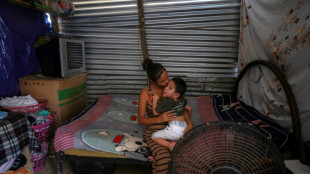
-
 Arsenal determined 'to make a statement' against PSG in Champions League semi-final
Arsenal determined 'to make a statement' against PSG in Champions League semi-final
-
Top US court allows Trump's ban on trans troops to take effect
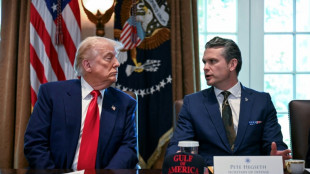
-
 Whole lotta legal argument: Led Zeppelin guitarist Page sued
Whole lotta legal argument: Led Zeppelin guitarist Page sued
-
US, Yemen's Huthis agree ceasefire: mediator Oman
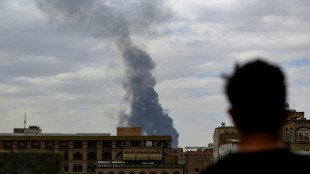
-
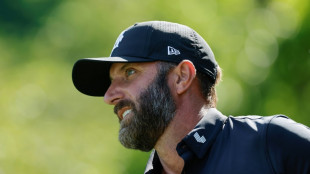 Johnson receives special invite to PGA Championship
Johnson receives special invite to PGA Championship
-
Trump says US should to stop 'subsidizing' Canada as trade talks continue
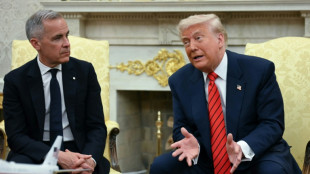
-
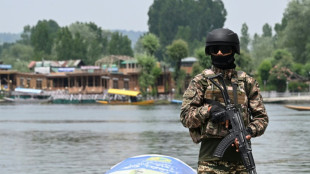 Indian PM vows to stop waters key to rival Pakistan
Indian PM vows to stop waters key to rival Pakistan
-
Thousands demonstrate in Panama over deal with US military
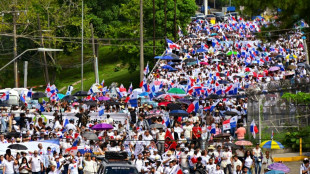
-
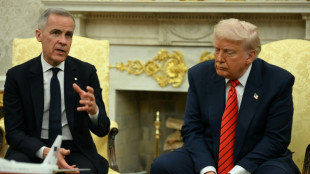 Canada 'never for sale', Carney tells Trump
Canada 'never for sale', Carney tells Trump
-
Vatican readies for conclave lockdown
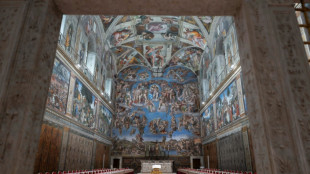
-
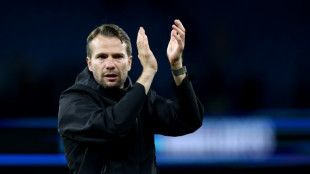 Championship club Watford sack manager Cleverley
Championship club Watford sack manager Cleverley
-
New German leader Merz stumbles out of the blocks
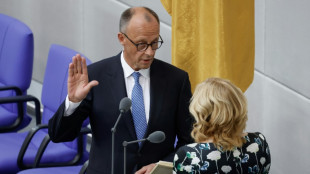
-
 'Wagatha Christie': Vardy and Rooney settle on legal costs
'Wagatha Christie': Vardy and Rooney settle on legal costs
-
Defending Rome champion Zverev blames burn out on poor run of form
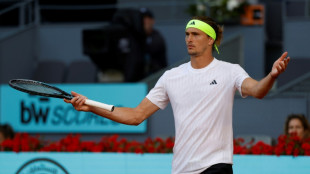
-
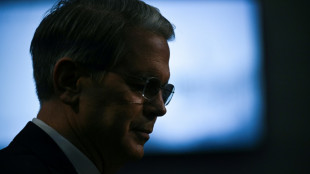 No signs of US recession, Treasury Secretary says
No signs of US recession, Treasury Secretary says
-
Israel pummels Yemen airport in reprisal against Huthis
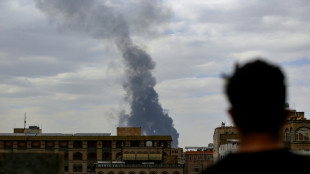
-
 Swiatek struggling with 'perfectionism' ahead of Rome
Swiatek struggling with 'perfectionism' ahead of Rome
-
Germany's Merz elected chancellor after surprise setback
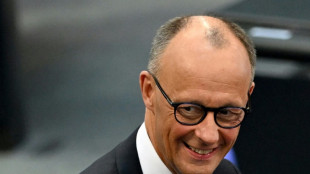
-
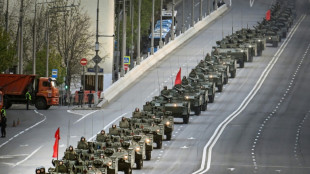 Ukraine fires drones on Moscow days before WWII parade
Ukraine fires drones on Moscow days before WWII parade
-
EU proposes ending all Russian gas imports by 2027
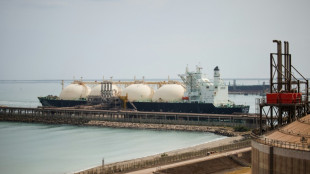

Vast cemetery in Iraq echoes 14 centuries of life and death
Tombstones stretch as far as the eye can see across Iraq's Wadi-al-Salam cemetery, often described as the world's biggest, which bears silent witness to life and death over 14 centuries.
Flowers, photographs and religious banners honour many of the millions buried in the ochre desert sands of the "Valley of Peace" -- victims of war and disease, accidents and old age.
"Oh my father!" laments one mourner, Jamil Abdelhassan, prostrating on a grave at the vast necropolis located in the Shiite holy shrine city of Najaf in central Iraq.
Tears and prayers are the currency of daily life at this sombre expanse of crypts, vaults and catacombs near the mausoleum of the revered Imam Ali, the founding figure of Shiite Islam.
"I'm sad, of course," says Abdelhassan, who travelled the 180 kilometres (110 miles) from the capital Baghdad to pray at the grave of his father, who died in 2014.
"But I'm also happy. I know that when Judgment Day comes, my father will be with Imam Ali."
For Shiites, who make up the religious majority in Iraq, "being buried near Imam Ali is very important," said the Najaf city historian Hassan Issa al-Hakim.
Sultans and soldiers, priests and prophets lie buried here, along with untold numbers of ordinary citizens.
Since Ali died in 661 and was laid to rest nearby, "people have stopped burying their dead in another cemetery in Najaf, Al-Thawiya, to put them to rest in Wadi al-Salam," he said.
"They believe Ali will play the role of intercessor for those around him during the Last Judgment."
- 'World's biggest cemetery' -
Many Iraqi Shiites chose the cemetery to lay to rest their loved ones.
"Digging a grave costs 150,000 dinars (about $100) and the tombstones cost 250,000 to 300,000 dinars ($170 to $200)," said Najah Marza Hamza, manager of a funeral company.
Some historians estimate that more than six million souls rest at the cemetery, mostly Iraqi but also Iranian and Pakistani Shiites.
"No, it's many more! But it's impossible to quantify," argued Hakim, a former president of the nearby Kufa University.
Iraq in a submission to UNESCO estimated its area at 917 hectares (2,265 acres) -- the equivalent of more than 1,700 football fields -- and called it "the oldest and biggest cemetery in the world".
There are no maps to guide visitors through the confusing labyrinth, which is also listed as the world's largest burial ground by the Guinness Book of World Records.
Mourners who drive here sometimes cause traffic jams on the avenues that cut through the huge graveyard.
At a recent ceremony, Ahmed Ali Hamed, 54, and some 20 relatives came from southern Iraq to bury his aunt Fatima, who he said had died "at about 80 years of age".
The funeral party consisted entirely of men "because the women don't come for the burial," Hamed said.
"They wash the body and go home. It's the tradition. The women will come, but on another day."
The elderly woman's body, wrapped in a shroud, was lowered into the grave dug from the ochre earth, facing the holy city of Mecca.
- 'Martyred' in Iraq's wars -
Many of those buried at Wadi al-Salam fell victim to the violence that has plagued Iraq, including in the recent decades marred by dictatorship, warfare and sectarian bloodshed.
One grave bears the photo of a smiling young man in an Iraqi army uniform, named in the inscription as "the martyr Ahmed Nasser al-Mamouri. Date of death: April 7, 2016".
His passing falls into the era when the Iraqi army, supported by an international coalition, beat back the jihadists of the Islamic State group from the country's north.
Others buried here died during Iraq's previous stretches of sorrow and tragedy -- the two Iraq wars and, before that, the 1980-1988 war with Iran under Saddam Hussein.
Another fighter, named in the inscription on a marble tomb as Hassan Karim, died a "martyr" in 1987, toward the end of the grinding conflict with the Islamic republic.
The cemetery is also the final resting place of Abu Mehdi al-Mouhandis, the Iraqi lieutenant to the powerful Iranian general Qassem Soleimani, both of whom were killed in a US drone strike in January 2020.
More recently, the Covid pandemic caused excess mortality, said grave digger Thamer Moussa Hreina, 43.
"During the coronavirus pandemic, we had 5,000 to 6,000 more bodies over a year," he said, his gaze sweeping across the expanse of graves.
Hakim, the historian, said the Covid death toll reflected Iraq's darkest days.
"During wars and crises, there are more deaths," he said. "We would bury up to 200 people a day."
Y.Kobayashi--AMWN